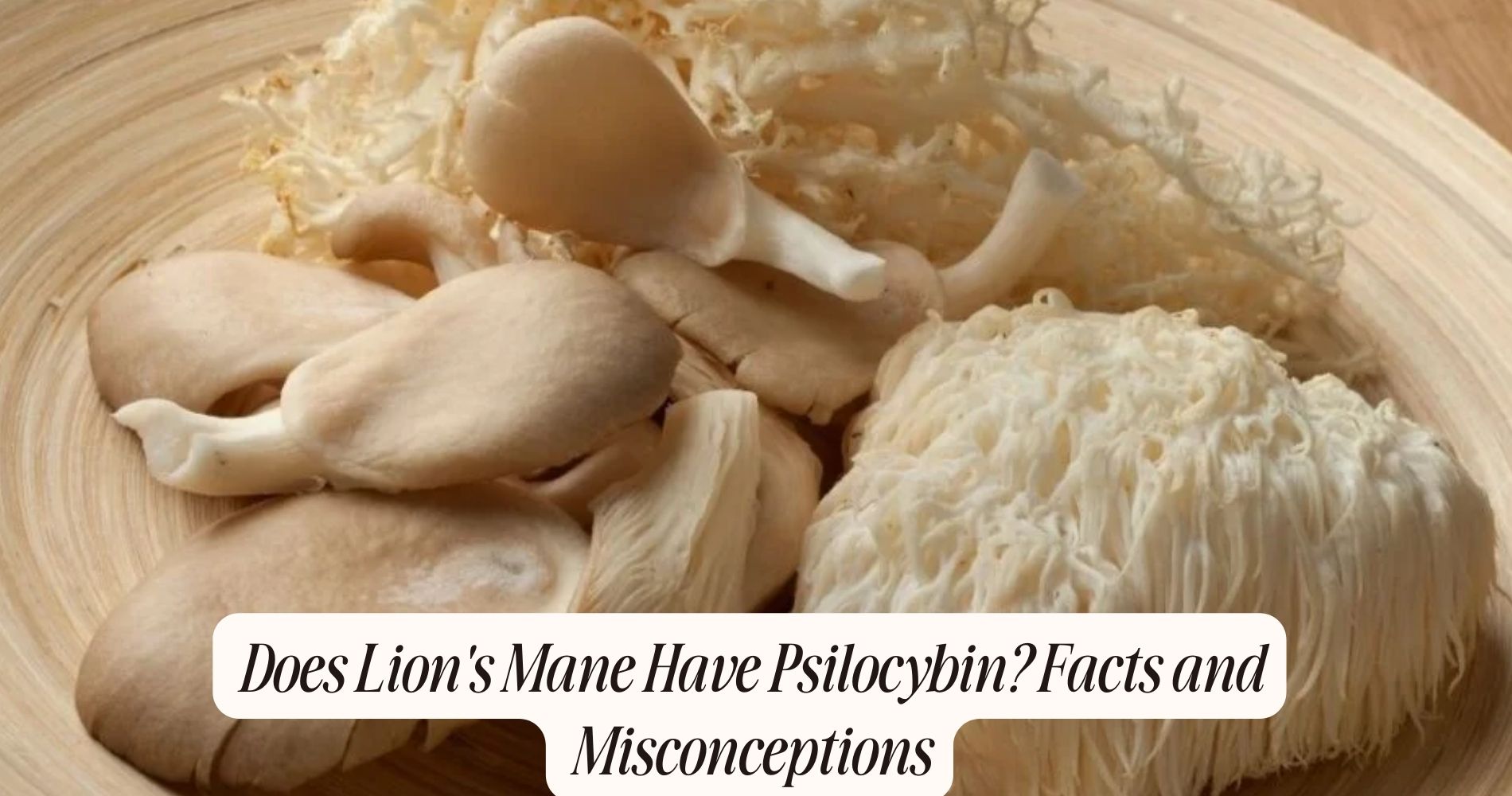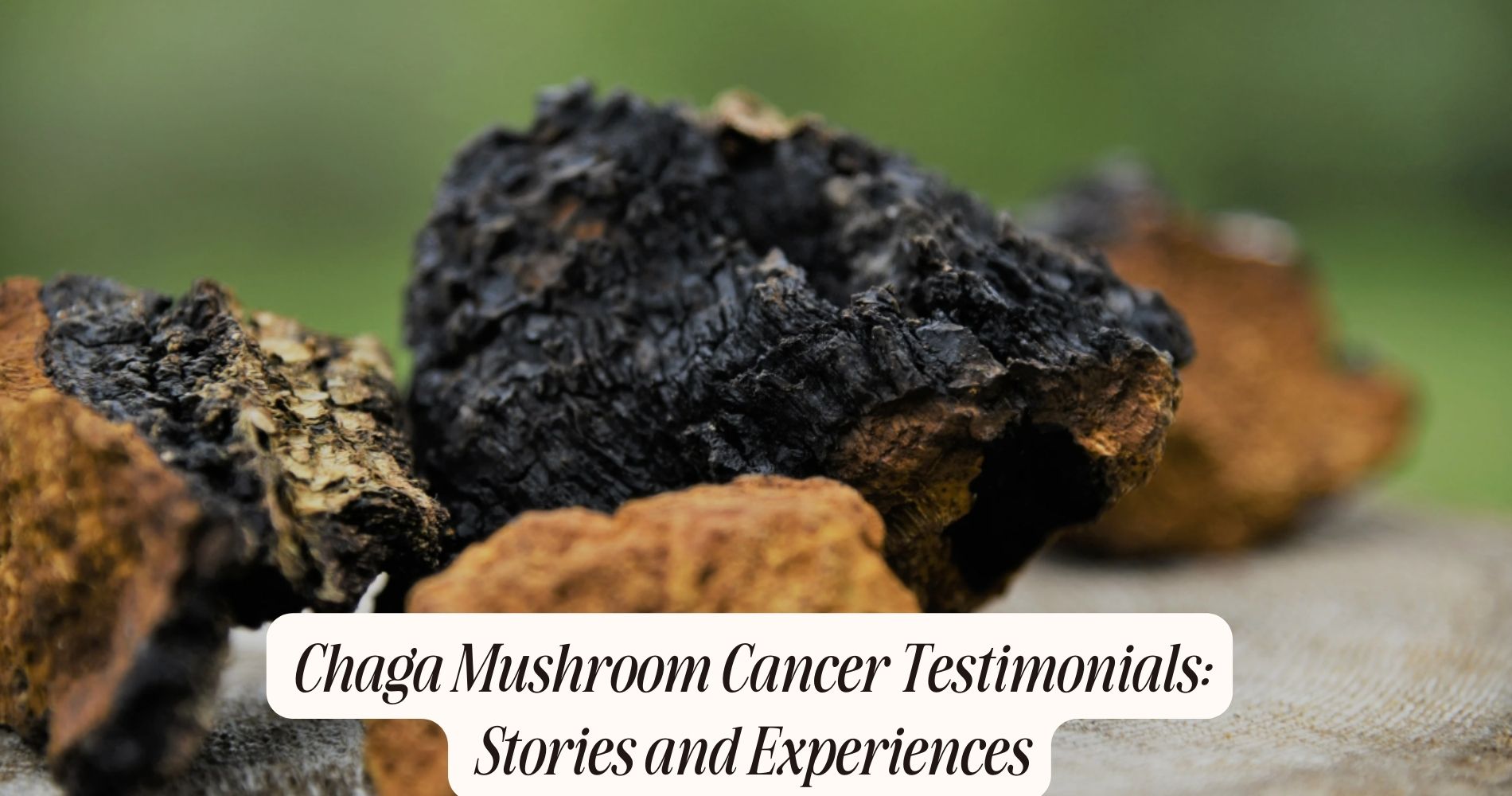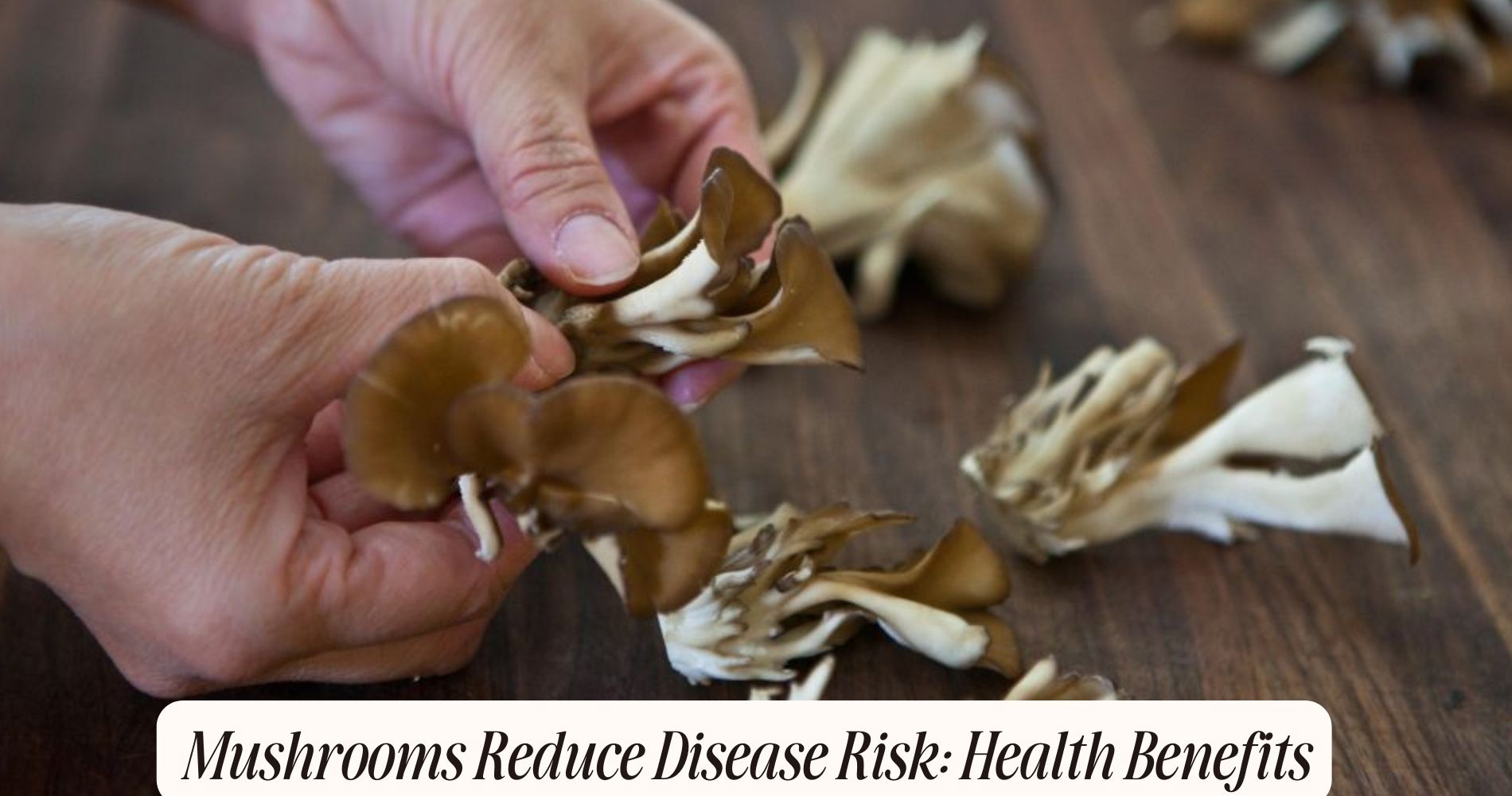
Does Lion's Mane Have Psilocybin? Facts and Misconceptions
Does lion's mane have psilocybin? No, Lion's Mane (Hericium erinaceus) doesn't contain psilocybin. While Lion's Mane is a medicinal mushroom celebrated for its cognitive and neuroprotective benefits due to compounds like hericenones and erinacines, psilocybin is a psychoactive substance found in so-called 'magic mushrooms'. Unlike psilocybin, which induces hallucinogenic effects by interacting with serotonin receptors, Lion's Mane is non-hallucinogenic and supports nerve growth factor synthesis, without altering your mental state. Understanding these differences is essential to avoid conflating the distinct therapeutic potentials of these mushrooms. To uncover more nuanced details about their benefits and uses, keep exploring the available information.
Understanding Lion's Mane
Lion's Mane, or Hericium erinaceus, is a unique medicinal mushroom known for its potential cognitive and neuroprotective benefits, supported by various scientific studies. When you explore the world of medicinal mushrooms, you'll find Lion's Mane stands out due to its distinct appearance and promising health effects.
Research has shown that Lion's Mane contains bioactive compounds, such as hericenones and erinacines, which may stimulate nerve growth factor (NGF) synthesis, critical for maintaining and regenerating neurons.
Studies suggest that regular consumption of Lion's Mane may improve cognitive function, particularly in older adults experiencing mild cognitive impairment. In one study, participants who took Lion's Mane extract for 16 weeks showed significant improvements in cognitive tests compared to those who took a placebo.

Additionally, Lion's Mane's anti-inflammatory and antioxidant properties contribute to its potential neuroprotective effects, which may help shield the brain from damage related to neurodegenerative diseases.
It's essential to note that Lion's Mane isn't a hallucinogenic mushroom. Unlike psilocybin-containing mushrooms, Lion's Mane doesn't produce psychedelic effects, making it safe for daily use to harness its cognitive benefits without altering your state of mind.
What Is Psilocybin?
Psilocybin is a naturally occurring psychedelic compound found in certain species of mushrooms.
Structurally, it's a prodrug that the body converts into psilocin, which then interacts with serotonin receptors in the brain.
You'll find these mushrooms primarily in tropical and subtropical regions.
Psilocybin Chemical Structure
With its intriguing molecular composition, psilocybin is a naturally occurring psychedelic compound that primarily affects the serotonin receptors in the brain. Chemically known as 4-phosphoryloxy-N,N-dimethyltryptamine, psilocybin is structurally similar to serotonin, a key neurotransmitter. This similarity allows it to interact effectively with serotonin receptors, particularly the 5-HT2A subtype, which is believed to be responsible for its psychoactive effects.
Psilocybin synthesis involves the incorporation of a phosphate group to the 4-position of the indole ring, a characteristic feature that differentiates it from other tryptamines. Upon ingestion, psilocybin is rapidly dephosphorylated to psilocin, the active metabolite that binds to serotonin receptors. This binding initiates a cascade of neurotransmitter activity, leading to altered sensory perception and cognitive processes.
Understanding the chemical structure of psilocybin is vital for comprehending its pharmacological actions. The molecule's dual ring structure, comprising an indole ring fused to a pyrrole ring, is essential for its interaction with the brain's receptors. Advances in research have shown that the affinity of psilocybin for these receptors is what underlies its potent psychotropic properties, making it a compound of significant interest in the field of psychopharmacology.
Natural Sources Explained
Exploring the origins of this fascinating compound, you'll find that psilocybin is mainly produced by over 200 species of mushrooms, primarily within the genus Psilocybe. These mushrooms, often referred to as 'magic mushrooms,' contain psilocybin and its derivative, psilocin, which are responsible for their psychoactive properties.
Unlike Lion's Mane, which is valued for its cognitive-enhancing benefits and often used in natural supplements, Psilocybe mushrooms are specifically sought after for their hallucinogenic effects.
Psilocybin acts as a prodrug, meaning it's converted into psilocin in the body, which then interacts with serotonin receptors in the brain, particularly the 5-HT2A receptor. This interaction results in altered perception, mood, and cognition. Scientific studies have shown that these effects can be both profound and therapeutic, leading to increased interest in psilocybin for mental health treatments.
While mushroom varieties like Lion's Mane are renowned for their health benefits without psychoactive effects, Psilocybe species are distinct due to their unique chemical composition.
Understanding these differences is essential for anyone interested in natural supplements and their diverse applications. This knowledge helps demystify common misconceptions and highlights the specific benefits each mushroom variety offers.
Chemical Composition of Lion's Mane
Lion's Mane mushroom boasts a unique chemical composition, rich in bioactive compounds such as hericenones and erinacines, which have been extensively studied for their neuroprotective properties. These compounds are known to stimulate the production of nerve growth factor (NGF), a protein essential for the growth, maintenance, and survival of neurons. Hericenones, primarily found in the fruiting body, and erinacines, located in the mycelium, are the key contributors to these effects.
You'll also find other significant components in Lion's Mane, including polysaccharides, which have immunomodulatory and anti-inflammatory properties. These complex carbohydrates enhance your immune system by promoting the activity of macrophages and natural killer cells. Additionally, the mushroom contains antioxidants like beta-glucans and phenols, which help combat oxidative stress and reduce inflammation.

In terms of mineral content, Lion's Mane is rich in potassium, zinc, and iron, each playing essential roles in various physiological functions. Potassium aids in regulating fluid balance, while zinc supports immune function and iron is critical for oxygen transport.
All these chemical properties make Lion's Mane a valuable addition to your diet, particularly for its potential cognitive and immune-boosting benefits.
Lion's Mane Vs. Magic Mushrooms
When comparing Lion's Mane to magic mushrooms, you'll notice they contain different active compounds:
Lion's Mane has hericenones and erinacines, while magic mushrooms contain psilocybin.
Research shows Lion's Mane supports cognitive function and nerve health, whereas psilocybin has been studied for its potential in treating mental health disorders.
Additionally, Lion's Mane is legal in most places, while psilocybin's legal status varies considerably worldwide.
Different Active Compounds
The distinct active compounds in Lion's Mane and magic mushrooms are responsible for their unique effects and potential health benefits.
Lion's Mane contains hericenones and erinacines, which are compounds known for their neuroprotective and nootropic properties. These active compounds stimulate nerve growth factor (NGF) production, aiding in the maintenance and regeneration of neurons. This can potentially improve cognitive functions and protect against neurodegenerative diseases.
On the other hand, magic mushrooms contain psilocybin, a psychoactive compound that converts to psilocin in the body. Psilocin interacts with serotonin receptors in the brain, particularly the 5-HT2A receptor, causing altered perception, mood, and cognition. The medicinal properties of psilocybin are being researched for their potential in treating mental health conditions such as depression, anxiety, and PTSD.
Both fungi offer promising medicinal properties, but their active compounds serve very different roles. While Lion's Mane focuses on enhancing neural health and cognitive function, magic mushrooms primarily affect mental and emotional states through serotonin receptor modulation.
Understanding these differences is essential when considering their use for health-related purposes.
Health Benefits Comparison
Comparing the health benefits of Lion's Mane and magic mushrooms reveals distinct advantages tied to each fungus's unique active compounds.
Lion's Mane contains hericenones and erinacines, which have shown promising results in cognitive enhancement. Research indicates that these compounds can stimulate nerve growth factor (NGF) production, potentially improving memory and cognitive function. This makes Lion's Mane a popular natural supplement for those seeking to bolster brain health.

Magic mushrooms, on the other hand, contain psilocybin, a psychedelic compound that has gained attention for its mental health benefits. Studies have demonstrated that psilocybin can help alleviate symptoms of depression, anxiety, and PTSD by promoting neuroplasticity and altering brain connectivity.
When it comes to immune support, Lion's Mane again stands out. Its polysaccharides and beta-glucans are known to enhance the immune system by boosting the activity of macrophages and natural killer cells. This immune-boosting effect can help your body ward off infections and diseases.
Magic mushrooms don't offer the same level of immune support. Instead, their primary benefits lie in the area of mental health and well-being through cognitive enhancement and emotional regulation.
Each fungus offers unique health advantages, making them suitable for different therapeutic purposes.
Legal Status Differences
Guiding through the legal status of Lion's Mane and magic mushrooms requires understanding the distinct regulatory frameworks governing each fungus.
Lion's Mane (Hericium erinaceus) is a culinary and medicinal mushroom widely accepted across many countries. You'll find it legally available in health food stores, online retailers, and even local markets. The legal implications are minimal, as it doesn't contain any psychoactive substances like psilocybin.
On the other hand, magic mushrooms (Psilocybe species) contain psilocybin, a psychoactive compound classified as a Schedule I controlled substance in many jurisdictions, including the United States. This classification means they're considered to have a high potential for abuse and no accepted medical use.
Regulatory differences are stark: while Lion's Mane can be freely cultivated and sold, magic mushrooms are subject to stringent legal restrictions, often requiring special permissions for research purposes.
In some regions, however, there's a growing movement towards decriminalization and therapeutic use of psilocybin. Cities like Denver and states like Oregon have begun to shift policies, reflecting changing attitudes towards its potential benefits.
Understanding these regulatory differences is essential when considering the legal implications of using either fungus.
Health Benefits of Lion's Mane
Many studies suggest that Lion's Mane mushroom, scientifically known as Hericium erinaceus, offers a range of cognitive and neurological benefits, including enhanced memory and improved nerve cell growth.
Research indicates that compounds in Lion's Mane, such as hericenones and erinacines, stimulate the production of nerve growth factor (NGF), essential for the maintenance and regeneration of neurons. This can result in significant cognitive enhancement, potentially aiding in the prevention of neurodegenerative diseases like Alzheimer's and Parkinson's.
In addition to its cognitive benefits, Lion's Mane also supports the immune system. The mushroom contains bioactive polysaccharides, particularly beta-glucans, which have been shown to modulate the immune response.
These compounds enhance the activity of macrophages, T-cells, and natural killer cells, providing a robust defense against pathogens and supporting overall immune health.
Scientific studies further suggest that Lion's Mane may reduce inflammation and oxidative stress, both of which are linked to chronic diseases.
Common Misconceptions
A prevalent misconception about Lion's Mane and Psilocybin mushrooms is that they serve the same purpose and offer identical benefits. This myth stems largely from a lack of understanding about their distinct biochemical properties.
Lion's Mane (Hericium erinaceus) is celebrated for its neuroprotective and cognitive-enhancing effects, primarily due to compounds like hericenones and erinacines. On the other hand, Psilocybin mushrooms contain psilocybin, a psychoactive compound that influences serotonin receptors to produce hallucinogenic effects.

Public perception often conflates these mushrooms because both are associated with brain health. However, the mechanisms driving their effects are entirely different. Lion's Mane supports nerve growth factor (NGF) synthesis, which aids in neurogenesis and myelination. Psilocybin, however, is studied for its potential in treating depression and PTSD by creating new neural pathways through a process called neuroplasticity.
In myth debunking, it's essential to highlight that Lion's Mane doesn't contain psilocybin and consequently doesn't induce hallucinations or have the same psychotropic effects.
Scientific Research Findings
Understanding these distinctions becomes even more compelling when examining the scientific research findings that underscore the unique benefits and mechanisms of both Lion's Mane and Psilocybin mushrooms.
Studies have shown that Lion's Mane contains compounds like hericenones and erinacines, which have been linked to neuroprotective effects. These compounds promote the synthesis of Nerve Growth Factor (NGF), a protein essential for the growth, maintenance, and survival of neurons. This action can potentially aid in cognitive enhancement, particularly in memory and learning.
On the other hand, Psilocybin, the active compound in certain psychedelic mushrooms, has garnered attention for its profound effects on the brain. Research indicates that Psilocybin can lead to structural and functional changes in the brain, promoting neuroplasticity and altering neural pathways. These changes are associated with improved psychological outcomes, such as reduced symptoms of depression and anxiety, which indirectly contribute to cognitive enhancement.
Both Lion's Mane and Psilocybin offer promising avenues for brain health, but through distinctly different mechanisms. While Lion's Mane supports neuroprotection and cognitive function through NGF stimulation, Psilocybin's effects are more centered on altering brain connectivity and promoting mental health.
Safe Consumption Practices
Guaranteeing the safe consumption of Lion's Mane and Psilocybin involves adhering to dosage guidelines, sourcing quality products, and being aware of potential interactions and side effects.
For Lion's Mane, studies suggest a safe dosage ranges from 500 to 3000 mg per day. Always start at the lower end and gradually increase as needed. It's essential to purchase from reputable suppliers to confirm the product is free from contaminants and accurately labeled.
Psilocybin, on the other hand, requires more caution due to its psychoactive properties. A typical safe dosage for microdosing is around 0.1 to 0.3 grams of dried mushrooms, while a full dose ranges from 1 to 5 grams. Be mindful of your environment and mental state before consumption, as these can greatly influence your experience.
Preparation methods for both substances also matter. For Lion's Mane, consuming it as a powdered supplement, tea, or in its natural form guarantees bioavailability. Psilocybin mushrooms are often dried and can be consumed directly or brewed into a tea to reduce nausea.
Always consult with a healthcare professional before starting any new supplement, especially if you have underlying health conditions or are taking other medications.
Discover the Benefits of SUPER MUSHROOM GUMMIES
If you're curious about Lion's Mane and its benefits, consider trying Well Gummies' SUPER MUSHROOM GUMMIES. This convenient gum chew product includes 10 types of functional mushrooms, including Lion's Mane. Our vegan gummies fuel your brain and energize your body naturally, delivering calmer energy, sharper focus, and immune support for a balanced body and clear mind.
Taste the delightful flavor of fresh wild berries—just as delicious as your favorite candy. Plus, you'll enjoy the benefits without the jitters or crash, allowing you to shine all day. Explore the advantages of incorporating SUPER MUSHROOM GUMMIES into your daily routine for a healthier, more vibrant you.
Frequently Asked Questions
Can Lion's Mane Be Used in Cooking?
Yes, you can use Lion's Mane in cooking. Various cooking methods like sautéing or roasting bring out its unique flavor. It offers nutritional benefits, including antioxidants and polysaccharides, which support brain health and immune function.
Are There Any Known Drug Interactions With Lion's Mane?
Lion's Mane is generally safe, but you should consult a healthcare provider about potential drug interactions. Some evidence suggests it might affect blood thinners or diabetes medications, so professional guidance is essential.
Where Can I Purchase Lion's Mane Supplements?
You can purchase Lion's Mane supplements from online retailers. It's essential to compare products for purity, potency, and third-party testing. Look for evidence-based reviews and certifications to guarantee you're choosing a high-quality supplement.
How Does Lion's Mane Affect Mental Clarity?
Lion's Mane boosts your mental focus and cognitive enhancement by stimulating Nerve Growth Factor (NGF) production. Scientific studies suggest it supports brain health, potentially improving memory, concentration, and overall mental clarity. It's a natural nootropic.
Is Lion's Mane Safe for Children?
Yes, Lion's Mane is generally safe for children, but you should consult a pediatrician first. Lion's Mane benefits include improved cognitive function and nerve health. Make certain you follow an appropriate Lion's Mane dosage tailored for children.
Conclusion
To wrap up, you now know that Lion's Mane doesn't contain psilocybin, a compound found in magic mushrooms.
Instead, it's packed with beneficial compounds like hericenones and erinacines that support brain health.
By understanding these differences and debunking myths, you can make informed decisions.
Research continues to highlight Lion's Mane's potential, but always consult a healthcare provider for safe consumption practices.
Stay curious and informed to harness the full benefits of this remarkable mushroom.




